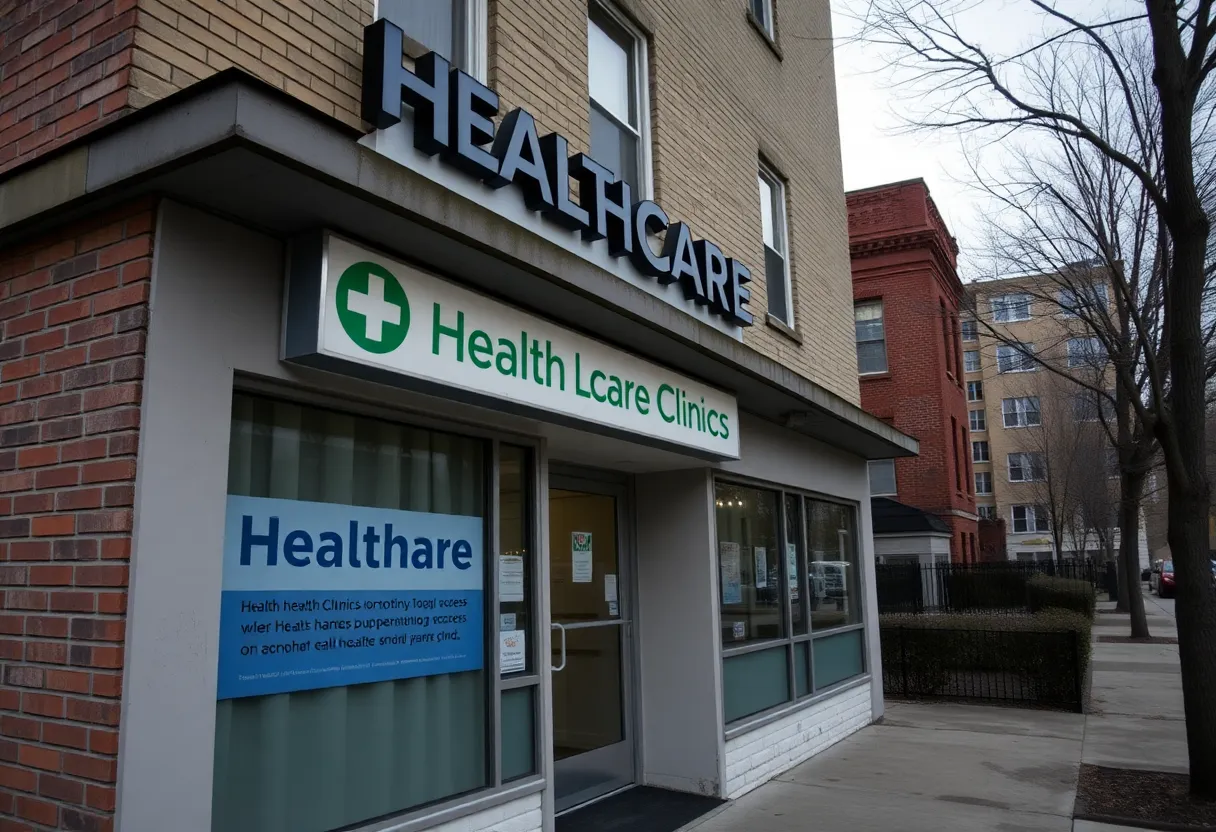News Summary
Planned Parenthood clinics across New York state are grappling with a funding crisis after a recent federal law cut Medicaid payments for services. Congressional Republicans have moved to ‘defund’ the organization, jeopardizing its ability to provide essential health care. With over $20 million of its revenue reliant on Medicaid, Planned Parenthood now risks clinic closures and reduced healthcare access for thousands of patients. Despite the ongoing challenges, the organization is exploring options to sustain its operations amidst the uncertainties surrounding future funding.
New York – Planned Parenthood clinics in New York state are currently facing a funding crisis after a domestic policy law, signed by President Donald Trump on July 4, 2025, has led to the cessation of Medicaid payments for services provided to patients. Congressional Republicans voted to “defund” the nonprofit organization by restricting federal Medicaid dollars to those that provide abortion services, affecting a wide range of unrelated health services. As a result, the organization now struggles to sustain its operations across the state.
Despite serving over 88,000 patients in the last fiscal year, Planned Parenthood of Greater New York reported that more than $20 million of the $36 million generated in patient revenue came from Medicaid. The new federal law complicates financial arrangements, especially since New York has historically covered abortions through state funds. Without the needed federal support, the organization is at risk of major revenue losses, which could lead to the closure of multiple clinics and reduced availability of critical healthcare services.
As of now, patients can still receive services at Planned Parenthood clinics, but without corresponding payment through Medicaid, the future sustainability of these vital health resources is uncertain. Wendy Stark, the president of Planned Parenthood of Greater New York, described the current situation as a “particularly bad storm,” signaling that this is not the first challenge the organization has encountered.
In a related development, a federal judge in Massachusetts issued a preliminary injunction against the new restrictions; however, this ruling does not extend to New York. The ruling primarily aids affiliates with minimal Medicaid revenue or those not providing abortion services, leaving New York’s Planned Parenthood affiliates without any immediate relief.
Nationwide, the new legislation threatens to close approximately 200 Planned Parenthood health centers, potentially creating significant gaps in healthcare access for millions of individuals. Planned Parenthood is currently exploring options to alleviate the situation, including the possible sale of the Bleecker Street building, which houses its Manhattan clinic, to sustain operations in the area.
The New York City health department is actively taking steps to expand abortion access, including the Fort Greene Sexual Health Clinic, which is now offering free or low-cost medication abortion services regardless of insurance or immigration status. Despite these efforts, there remains uncertainty over whether the state will continue to fund abortion services at Planned Parenthood clinics. Danielle DeSouza, a spokesperson for the New York health department, did not provide clarity on the state’s future funding plans.
Governor Kathy Hochul’s administration has expressed its support for reproductive freedom; however, there has been no commitment made to address the funding shortfalls resulting from the new federal law. Stark emphasized that the federal attempts to “starve” Planned Parenthood represent a backdoor abortion ban, which could further limit access to essential health services.
The U.S. Department of Health and Human Services is actively appealing the federal court ruling that provided preliminary relief. Planned Parenthood Federation of America has also signaled its intent to fight the new law in court, as they seek to secure funding and protect the availability of reproductive health services throughout the country.
The implications of the funding crisis extend beyond just Planned Parenthood, as the community will feel the impact of lost healthcare services and limited access to essential reproductive health measures if resolutions are not quickly achieved. The actions taken in the coming months by state and federal authorities will be crucial in determining the continuity of these vital services.
Deeper Dive: News & Info About This Topic
- The New York Times: Trump and Planned Parenthood
- Wikipedia: Planned Parenthood
- Gothamist: NY’s Planned Parenthood Clinics
- Encyclopedia Britannica: Planned Parenthood
- National Catholic Register: Planned Parenthood Facilities Shut Down
- Google Search: Planned Parenthood funding crisis

Author: STAFF HERE NEW YORK WRITER
The NEW YORK STAFF WRITER represents the experienced team at HERENewYork.com, your go-to source for actionable local news and information in New York, the five boroughs, and beyond. Specializing in "news you can use," we cover essential topics like product reviews for personal and business needs, local business directories, politics, real estate trends, neighborhood insights, and state news affecting the area—with deep expertise drawn from years of dedicated reporting and strong community input, including local press releases and business updates. We deliver top reporting on high-value events such as New York Fashion Week, Macy's Thanksgiving Day Parade, and Tribeca Film Festival. Our coverage extends to key organizations like the Greater New York Chamber of Commerce and United Way of New York, plus leading businesses in finance and media that power the local economy such as JPMorgan Chase, Goldman Sachs, and Bloomberg. As part of the broader HERE network, including HEREBuffalo.com, we provide comprehensive, credible insights into New York's dynamic landscape.





